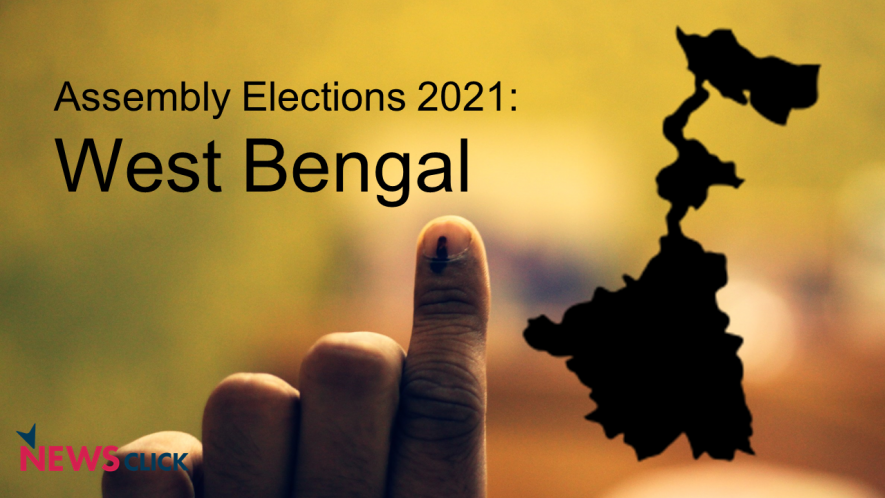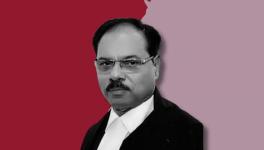Lesson BJP has Drawn from Bengal Defeat: Communalise India Even More

On Sunday, 2nd May, the day it became clear that the Bharatiya Janata Party’s bid to conquer the fortress of West Bengal had been thwarted, the party’s Rajya Sabha MP, Rakesh Sinha, tweeted, “Wake up call: Minority veto in electoral politics will be devastating for our secular democracy.” Sinha did not spell out whether the “minority” he was alluding to was an electoral or religious or linguistic one. Nor did he define the term “veto.” His concern for “secular democracy” sounded ironic given the BJP’s concerted efforts to communally polarise West Bengal over many tiring and anxious months.
Soon, Sinha followed his previous tweet with another: “Problem is not with a mode of worship or followers of a particular religion but when people vote as a religious community it defeats the very basic principle of democracy. Is it not happening in Indian democracy?”
The cat was out of the bag: Sinha was blaming the BJP’s failure to wrest West Bengal on a supposedly high degree of Muslim consolidation behind Mamata Banerjee’s Trinamool Congress.
Not for Sinha the possibility that the BJP’s shrill campaign could have scared even the Hindus of West Bengal about their future, evident from the party’s vote-share of 40.25% in the 2019 national election sliding to 38.1% in the recent West Bengal Assembly elections. Not for him to mull the possibility that the Left and Congress voters, Hindus and Muslims alike, might have drifted to Mamata only because they thought her party could deny power to the BJP in West Bengal.
Sinha’s tweets show West Bengal is unlikely to prompt the BJP into reassessing the politics of polarisation, the popular name of the electoral strategy that it pursues to capture power for establishing a Hindu rashtra. That the Rashtriya Swayamsevak Sangh, of which the BJP is an affiliate, will continue to view the universe through the prism in which Muslims are distorted as demons or villains, working overtime to undermine India.
The BJP’s tendency to invoke the Hindu-Muslim binary has been tellingly brought out in its categorisation of the condemnable post-poll violence erupting in West Bengal. For instance, BJP National General Secretary Kailash Vijayvargiya tweeted a video of two young men mercilessly assaulting women, with the following line: “TMC Muslim Goons are beating BJP Women Workers in Kendamari village, Nandigram.” It is, indeed, mysterious how Vijayvargiya figured out that the assailants were Muslim, as they were not sporting any markers of their religious identity.
The violence in West Bengal is between the cadres of competing political parties, not religious communities. On the day after the election results were announced, 11 people were reportedly killed—five of them belonged to the BJP, four to the Trinamool, one each to the Communist Party of India-Marxist and the Indian Secular Front, which Muslim cleric Abbas Siddiqui floated months before the Assembly elections.
The Telegraph newspaper reported that in “Burdwan, Birbhum and Bankura, many houses of CPM were vandalised” by alleged Trinamool goons. Two Trinamool workers—Sahajahan Sheikh and Bibhas Bag—were killed by BJP workers in Jamalpur, where a CPM activist was hacked to death by a gang owing allegiance to the Trinamool. All political parties have condemned the violence in West Bengal, as they must, without tagging it as communal in nature.
Only the BJP has sought to implicate Muslims in the bloodletting in West Bengal. The party seeks to build upon its age-old script, rewritten in a new language before every election, that Bangladeshi Muslims slipping into West Bengal are a risk to the Hindus there and India’s security. Its leaders had designed their 2021 election campaign on the assumption that West Bengal’s 27% Muslims would be divided between supporting the Trinamool and the Left-Congress-ISF alliance, and that the Hindu consolidation secured through a militant Hindutva plank would thus provide the BJP with an adequate vote-share to come to power.
The assumptions of Hindutva leaders ran aground, largely because voters of different ideological persuasions, in significant numbers, decided their primary goal must be to keep the BJP out of power. In 2020, Delhi too had witnessed such a consolidation, with many of those ideologically critical of the Aam Aadmi Party swinging behind it. They rightly figured out that only the AAP could vanquish the BJP in the Capital.
The BJP is loath to publically accepting such a popular consolidation from emerging against it, for it would also imply accepting Hindutva’s limitations. This is why Sinha has spoken of a “minority veto”, projecting its defeat in West Bengal as a result of Muslim consolidation than a larger social one. This is also why Vijayvargiya will seek to portray the violence in West Bengal as having been triggered by Muslims.
West Bengal underscores the limits of BJP’s politics of polarisation, yet the party will not be persuaded to rethink its electoral strategy. It will, in fact, strive to widen the Hindu-Muslim cleavage to overcome the adverse situation arising from the misgovernance of BJP governments both at the Centre and in the States it rules.
The brutal second wave of Covid-19 has been blamed on the negligence of Prime Minister Narendra Modi, who is perceived to have been too focussed on winning West Bengal than attending to Indians traumatised by their experience of the broken health system. As the Indian economy is unlikely to recover anytime soon, employment opportunities and incomes will shrink. On top of it, the trauma of Uttar Pradesh, the politically most crucial state of India, has proved that Chief Minister Adityanath rules more by bluff and bluster than sagacity.
Uttar Pradesh is due to elect its new Assembly early next year. The results from its recent panchayat elections have not been comforting for the BJP. The farmers in west Uttar Pradesh, largely drawn from the Jat community, which has been among the BJP’s mainstays, are seething. The farmer movement also holds out the promise of papering over the divide between the Jats and Muslims.
For all these reasons, the BJP will only seek to sharpen Hindutva’s edge, to pre-empt a larger social solidarity cutting across religion, caste, class from emerging against it. No wonder, the BJP was quick to tag the post-poll violence as communal. Forty-eight hours after the West Bengal results were announced, the only lesson the BJP seems to have drawn from its defeat is that it should do more of what it did there—communalise and divide India even further.
The author is an independent journalist. The views are personal.
Get the latest reports & analysis with people's perspective on Protests, movements & deep analytical videos, discussions of the current affairs in your Telegram app. Subscribe to NewsClick's Telegram channel & get Real-Time updates on stories, as they get published on our website.























